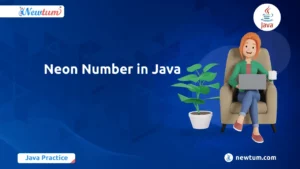C++ is a powerful and versatile programming language that has stood the test of time. Renowned for its efficiency and flexibility, C++ is widely used across various domains, including system software, game development, web browsers, and even embedded systems. Its robust capabilities make it an essential tool for beginners eager to understand the foundations of programming. Have you ever wondered why C++ is considered the backbone of modern computing? Let’s dive in and explore its remarkable features and benefits.
What is C++?
C++ is a high-level programming language developed by Bjarne Stroustrup in 1983. It was designed as an extension of the C language, introducing additional features to support object-oriented programming (OOP). C++ combines the efficiency of C with advanced capabilities, making it a hybrid language that supports both procedural and object-oriented paradigms.
Initially created to enhance software performance and adaptability, C++ has grown into a language that powers everything from operating systems to real-time systems. Its scalability and cross-platform support make it indispensable for building complex applications.
Why Learn C++?
C++ offers numerous advantages, making it a must-learn language for beginners and professionals alike:
- Performance: C++ is known for its high execution speed, making it ideal for performance-critical applications.
- Portability: Programs written in C++ can run on various platforms with minimal modifications.
- Versatility: From gaming to financial modeling and robotics, C++ is used in countless industries.
In gaming, for instance, engines like Unreal Engine rely heavily on C++. In the finance sector, it’s used for high-frequency trading applications. For embedded systems, C++ ensures efficient memory management and execution.
Key Features of C++
C++ stands out due to its rich feature set:
- Object-Oriented Programming (OOP): Supports essential OOP principles such as classes, inheritance, polymorphism, and encapsulation, allowing developers to build modular and reusable code.
- Memory Management: Offers direct access to memory using pointers, giving programmers fine-grained control over system resources.
- Rich Standard Library and STL: The Standard Template Library provides pre-built classes and functions for common data structures and algorithms, significantly speeding up development.
- Cross-Platform Functionality: Programs written in this language can run seamlessly across various operating systems with minimal changes.
- High Performance: Compiled directly to machine code, it delivers fast execution with minimal runtime overhead, making it ideal for performance-critical applications.
Beginner-Friendly Aspects
C++ might seem intimidating at first glance, but it offers several features that make it accessible for beginners. Here are some key aspects that help learners ease into the language:
Simple Syntax for Basic Operations
C++ provides a clean and straightforward syntax for fundamental programming tasks. Whether it’s declaring variables, performing arithmetic, or creating loops, the language ensures that beginners can quickly grasp the basics without getting bogged down by overly complex constructs.
#include <iostream>
using namespace std;
int main() {
cout << "Hello, World!" << endl;
return 0;
}
This simple syntax allows new programmers to focus on understanding logic and problem-solving rather than struggling with intricate language rules.
Availability of Comprehensive Learning Resources
One of the biggest advantages of this programming language is the abundance of learning materials available. From beginner-friendly books and online tutorials to interactive courses and forums, learners can find resources suited to every skill level. Platforms like Codecademy, Coursera, and various free online tools offer step-by-step guidance, allowing beginners to practice coding in real time.
Additionally, the strong community support means aspiring developers can easily get answers to their questions, engage in discussions, and share knowledge with peers around the world.
Examples
Here’s an example of a program that calculates the sum of two numbers:
#include <iostream>
using namespace std;
int main() {
int num1, num2, sum;
cout << "Enter first number: ";
cin >> num1;
cout << "Enter second number: ";
cin >> num2;
sum = num1 + num2;
cout << "The sum is: " << sum << endl;
return 0;
}
Common Applications of C++
Let’s explore how this powerful programming language is applied in real-world scenarios.
Game Engines
The gaming industry relies heavily on this language for its speed and ability to handle complex graphics. Epic Games, for example, built Unreal Engine with it—used to create visually rich titles like Fortnite and Gears of War. Its performance ensures smooth gameplay even in the most graphically demanding environments.
Operating Systems
Key components of major operating systems—like Windows, Linux, and macOS—are developed using this language. Its low-level access allows developers to fine-tune system performance and manage hardware interactions efficiently. Microsoft depends on it for maintaining core system functionality.
Web Browsers
Browsers such as Chrome, Firefox, and Safari use it under the hood to render web pages quickly and handle user inputs. Its processing power supports fast page loads and smooth operation of complex, content-heavy websites.
Financial Systems
In high-stakes finance, companies like Bloomberg and Morgan Stanley depend on its speed and reliability for high-frequency trading platforms. These systems execute millions of transactions with ultra-low latency, where performance is critical.
Popular Software
Professional tools like Adobe Photoshop and Autodesk Maya are built with it to deliver high-speed processing and user-friendly experiences. Even robust systems like MySQL, which support numerous websites globally, rely on this language for performance and stability.
How to Get Started with C++
Getting started with C++ is easier than you might think. All you need is a compiler or an IDE to write, compile, and execute your programs. Here’s how to get started:
- Choose a Compiler or IDE
- GCC (GNU Compiler Collection): A popular, open-source compiler available on Linux and Windows (via MinGW).
- Visual Studio: A robust IDE with built-in tools for compiling and debugging, perfect for beginners on Windows.
- Online IDEs: If you don’t want to install anything yet, try online compilers like Replit, JDoodle, or OnlineGDB. These allow you to write and run C++ code directly in your browser.
- Write Your First C++ Program
Start by writing a simple “Hello, World!” program. Here’s the basic code:#include <iostream> using namespace std; int main() { cout << "Hello, World!" << endl; return 0; }- This program includes the necessary library, prints a message, and exits.
- Compile and Run
- In Visual Studio, simply press Ctrl+F5 to compile and run.
- In GCC, open your terminal and type
g++ hello.cpp -o helloto compile, then./helloto run it. - In Online IDEs, you just need to click a “Run” button.
- Explore Tutorials and Beginner Projects
- Codecademy offers an interactive C++ course that walks you through the basics.
- GeeksforGeeks provides detailed tutorials and examples for learning C++ concepts.
- freeCodeCamp and Udemy also offer beginner C++ courses.
By following these steps and exploring the recommended resources, you’ll be well on your way to mastering C++.
Try the Newtum C++ Compiler now – code, compile, and run instantly in your browser without any setup!
Conclusion
Learning C++ is a valuable step for any beginner aspiring to master programming. Its versatility and power open doors to countless opportunities. Start your journey today by writing your first “Hello, World!” program and unlock the potential of C++ to build amazing applications! To learn more programming languages and to excel in C++, visit our Newtum, and get blogs and courses. Happy Coding!



